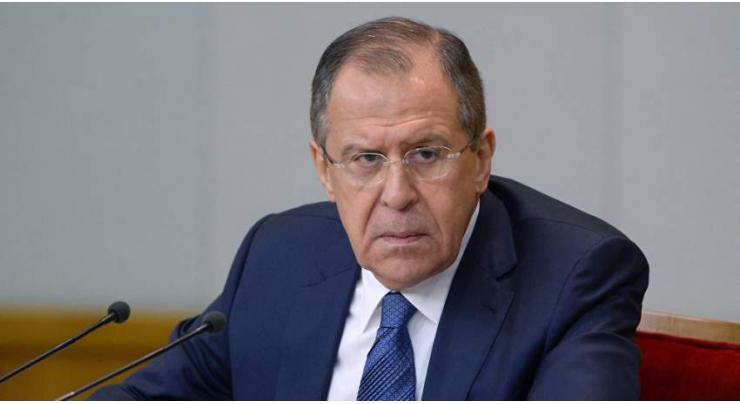
Russian Foreign Minister Says 'High Time' For Talks With US On Prolonging New START
Sumaira FH Published August 14, 2018 | 05:51 PM

Now is the appropriate time to begin Russia-US negotiations on the prolongation of the New Strategic Arms Reduction Treaty (START) that expires in 2021, Russian Foreign Minister Sergey Lavrov said on Tuesday.
MOSCOW (UrduPoint News / Sputnik - 14th August, 2018) Now is the appropriate time to begin Russia-US negotiations on the prolongation of the New Strategic Arms Reduction Treaty (START) that expires in 2021, Russian Foreign Minister Sergey Lavrov said on Tuesday.
On Monday, US President Donald Trump signed the country's 2019 defense budget. The bill, in particular, stipulated that the United States should discuss with Moscow whether Russia's Sarmat intercontinental ballistic missile and other new conventional weapons fell under the New START.
"I have heard statements from many experts and representatives of the US administration suggesting that [the United States] is interested in prolonging the New START. In this regard, it is, of course, high time to begin the negotiations, something which has [previously] been stated by [Russian] President [Vladimir] Putin," Lavrov said in response to a reporter's question about Moscow's position with regard to the US budget questioning whether or not the Russian arms conformed with the treaty.
The Russian foreign minister added that during the recent Russia-US summit in Helsinki, the Russian side had confirmed its willingness to resume a full-fledged dialogue on issues relating to strategic stability.
"Speaking about what [Washington] meant [by its statements on the future of the New START], it is difficult for me to say. It is futile now to try to predict what will happen in Washington in the coming days, even hours," Lavrov stressed.
The New START treaty, signed in 2010 and effectuated on February 5, 2011, requires Russia and the United States to, within seven years, reduce the number of deployed nuclear warheads to 1,550; cut deployed intercontinental ballistic missiles, submarine-launched ballistic missiles and heavy bombers capable of carrying nuclear armament to 700; and slash the number of ballistic missile launchers and heavy bombers to 800. The presidents of both countries can extend the accord for another five years if they choose.
Related Topics
Recent Stories

Punjab CM inaugurates Pakistan’s first Virtual Women Police Station

Dutch model Donny Roelvink embraces Islam

Experts raise concerns over introduction of 10-stick packs

Iranian president arrives in Karachi

Law Minister expresses Govt's resolve to address issue of missing persons

Rizwan’s batting order may be changed: Sources

Nawaz Sharif to visit Guangzhou exhibition in China

FM Dar not traveling to China: Foreign Office

PM takes notice of deliberate delay in tax cases

Iranian President visits Allama Iqbal’s mausoleum

Iranian President arrives in Lahore today

Currency Rate In Pakistan - Dollar, Euro, Pound, Riyal Rates On 23 April 2024
More Stories From World
-
Talks on global plastic treaty begin in Canada
23 minutes ago -
Migrant deportations loom after parliament passes UK-Rwanda plan
33 minutes ago -
Macron in last-ditch bid to halt EU vote battering
43 minutes ago -
Ukraine moves to bring military-aged men home to fight
2 hours ago -
Asia hit hardest by climate change, extreme weather: UN weather agency
2 hours ago -
Muscles and masterpieces: Louvre offers Olympic sport sessions
2 hours ago
-
Migrant boat capsizes off Djibouti leaving 16 dead
2 hours ago -
UK Rwanda law sparks fear among migrants hoping to cross Channel
4 hours ago -
China issues highest-level rainstorm warning after deadly floods
4 hours ago -
UK's Sunak announces raised defence spending, new Ukraine aid
5 hours ago -
Baby delivered from dying mother's womb in Gaza 'miracle'
5 hours ago -
Russia rejects US journalist Gershkovich's detention appeal
5 hours ago